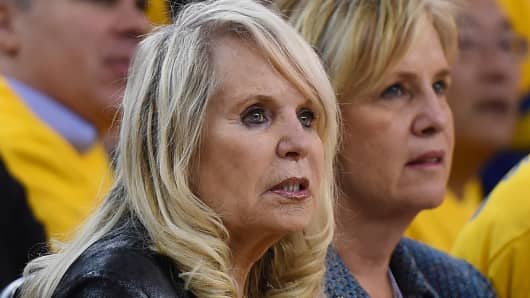Facing a June 3 hearing to terminate the Sterling family ownership of the Clippers, Donald Sterling has transferred his ownership to his wife, Shelly Sterling, who reportedly will seek to control the sale of the team to a third party.
Read MoreSterling cedes Clippers to wife, will sell: NBC
Under the NBA Constitution, this transfer can only take effect with the approval of the NBA. The NBA will only approve the transfer if it has a binding commitment from Shelly Sterling to immediately sell the team. Reportedly, Shelly Sterling has backed down from her earlier vow to fight to keep control of the team and will bind herself to immediately sell.


